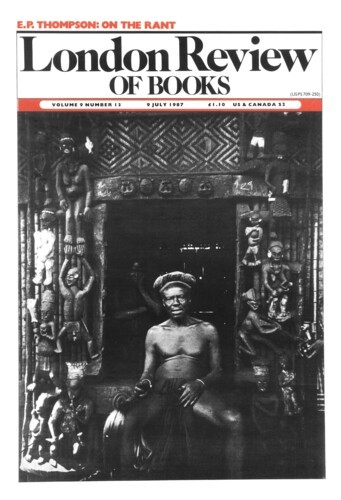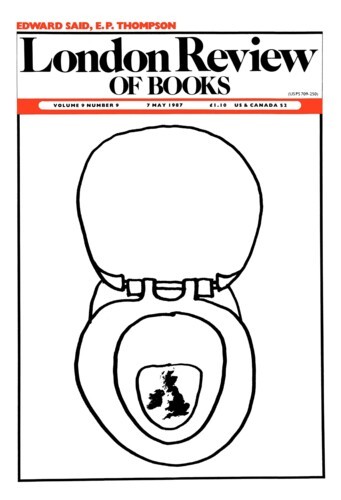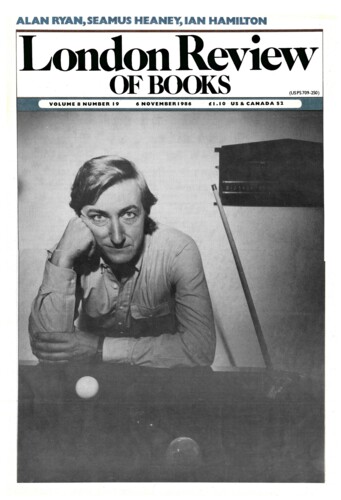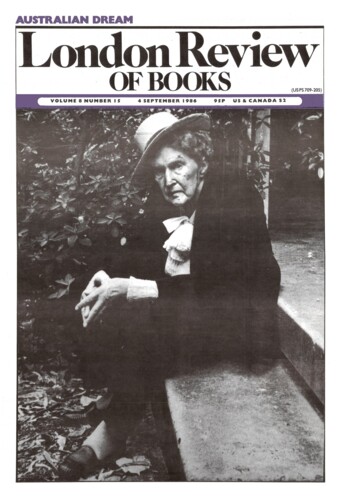Looking after men
Nicholas Spice, 9 July 1987
A novel may have a coherent plot, passably differentiated characters, fluent dialogue, passages of well-turned prose, and still be worthless if it isn’t also about something that matters. In this respect, the contemporary British novelist has a hard time of it, coming to the form when so much has already been said, when the necessary subjects have already been turned into novels many times over. For the African or South American, Indian or Australian novelist, it is easier to command attention, especially in the European market, where ignorance makes the reading of non-European novels a matter of basic education.





